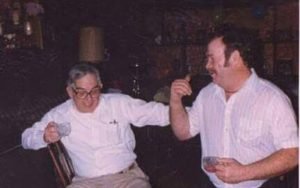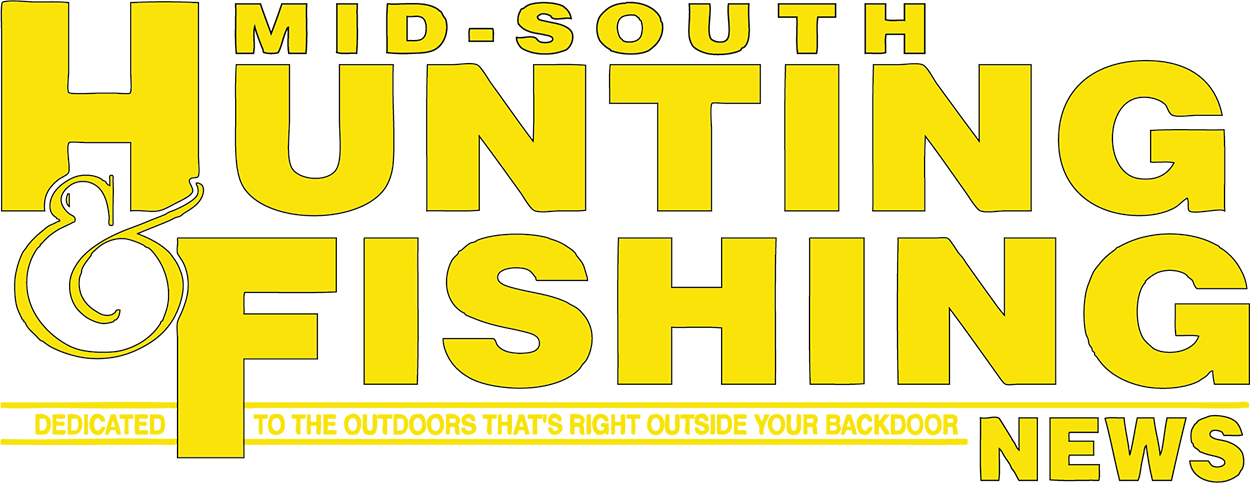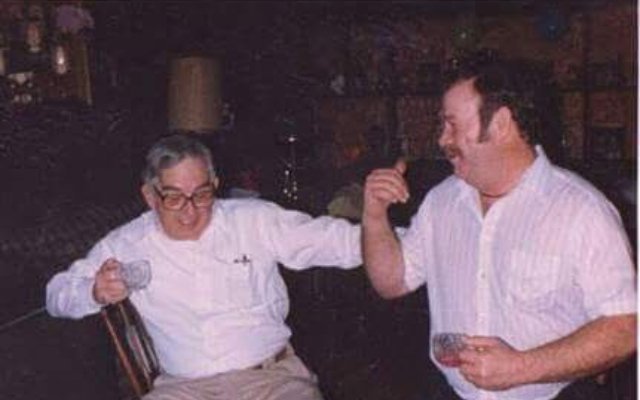By Taylor Wilson
The Outdoor Originals column is based on the premise of writing about Mid-South outdoor characters that readers would enjoy having the opportunity to hunt or fish with—or even be the famed fly on their wall.
Rest assured, though, if you were a fly on the wall in the presence of the late Claude Sensabaugh, you stood a good chance of getting exterminated. SPLAT. He was a true HUNTER/GATHERER, and that’s in all caps for a reason.
Based on my knowledge of the man, I’d hate to be a squirrel and wake up and know Sensabaugh was out there after me. Nor would I want to wear whiskers and sport fins in the Hatchie River, if he was fishing.
Sensabaugh lived near the West Tennessee community of Shepp where for decades he haunted, hounded and collected (in big piles) the fish and game of Hatchie Bottoms. He was the archetypal backwoodsman that lived on Nature’s bounty, within his own rules and regulations. Stories of him linger long after his death, which typically means, where’s there was smoke, there was fire/threads of truth. And is the nature of such stories, tales, folklore, etc., they only kindle the blaze.
Brownsville, Tennessee’s Ray Powell can vouch for many tales.
“My dad didn’t care for hunting and Claude did. He and my dad were friends, so Claude agreed to let me tag along,” Powell said, recalling his mentor.
“He’d let me duck hunt with him, and we’d walk for miles. Claude’s wife would pick us and our ducks up on the highway, wherever we’d end up. The first time we went, Claude borrowed my dad’s hip boots, because his were leaking. The only way the borrowed boots would fit was if Claude didn’t wear socks. It was 20 degrees. We walked miles, and it didn’t bother him a bit.
“Claude played by his own rules…for example, if someone wanted a squirrel stew, and squirrel season didn’t happen to be open, well, they called on Claude and he delivered, Powell said, adding that Sensabaugh was very good at living off the land.
“I’d shoot some squirrels, and Claude would double my numbers. I’d ask him to show me how, and he’d take me to a hickory tree and say, “See that one?” I’d say, “No,” and he’d say, “Can’t you see its ear sticking up over that limb?” Then, he’d shoot it.
“The lesson? He was looking for a part of the squirrel and I was looking for the whole thing.
“He really was that good at nearly anything to do with the outdoors and woodsmanship. Claude would run the river with a flashlight on dark nights, but most of the time he’d travel in the dark. He kept some cash set aside for when he’d get caught by the game warden. It would happen, and he’d simply pay up.
“He was always good to me,” Powell said.

Sensabaugh knew his playground better than anyone. As an example, Powell, whose family was in the timber business, told the story of a logging crew loading a trailer with logs freshly harvested from the Hatchie Bottom.
“Claude pointed at the logs on the trailer and said, ‘I know that tree and that one there, too.’ Then, he proceeded to tell the skid drivers where the trees were cut. He was right.”
The veteran woodsman didn’t seem to think much about his awareness, saying, “Oh, I watched all those trees grow up.”
Again, the Claude stories are many. One is of his enjoyment of an annual crap game held somewhere near the opening of squirrel season. The woodsman was a fan of throwing the dice and adult beverages. Many years ago, after a night absorbing both, Sensabaugh took to the woods for a pre-hunt celebration of firing off a few rounds, and then taking a sound nap.
An source that chose to remain anonymous confirmed that simultaneous to Claude’s siesta, some of his hunting partners happened upon the well-spent, shirt-less, shoe-less Sensabaugh—basking in nature, and covered in a buzzing, crawling, live swath of mosquitoes.
“The mosquitoes were humming, and he was snoring. They gingerly removed the gun from his lap. He never woke up, but the mosquitoes did rise from him like a covey of quail,” the source said, laughing at the memory.
“We took the gun to the landowner, on whose land Claude was sleeping/hunting. And when Claude woke up—probably anemic from donations to the Mosquito Blood Bank—he couldn’t find his firearm.”
The landowner called Claude and told him to come retrieve it and chastised him for wandering about on people’s property, and strongly suggested he not return. Claude agreed, but mostly he just said, “Thank the Lord, I thought I lost my gun!”
Even I have some Claude stories. One came to me via my daddy, who noted that the woodsman most often went everywhere in town wearing one/1 T-Shirt—even on the coldest of days. One extremely and historically cold morning, my dad was going duck hunting, and he walked into the local dinner in the pre-morning hours for breakfast. There amongst the customers sat Sensabaugh wearing two/2 T-Shirts.
“So, what did it mean?” I remember asking my dad when he relayed the story.
“Why, it meant I went back home! If it was a two-T-shirt day for Claude, it was WAY too cold for me to be outside!” my father laughed.
A couple of other times, I happened to see the remnant of a silhouette sneaking through the woods.
Once I was with a landowner, and asked, “Don’t you think you ought to tell him, he’s trespassing?” I asked.
“You go tell him, that’s Claude, you know?”
I knew. Enough said.
I also suspect my son once laid witness to the Ghost of the Hatchie when we still-hunted in a river bottom region which could double as the famed Middle of Nowhere.
“I just saw someone walk across that logging road,” said my youngster. Rubbing my eyes, and blinking twice, but seeing nothing, I wrote it off. In hindsight, I should have known the child was blessed to have seen the mystic, the myth—a vapor with a vengeance for game and fish.
How did he disappear so quickly in a white T-shirt? Or was he wearing a cloud of mosquitoes as camo?
All tales aside, my wife grew up in Shepp. Her family lived down the road from Sensabaugh’s. As a metro Sheppvillian herself, she has long-since tired of my back-woods jokes, especially with me being a city-boy Brownsvillian. But my routine included the ones about her family (now my family) all having backwater rings stained ’round their ankles…,” and, “…living so far back in the bottom that when you got to their house, you had to mail-in daylight, and then it took three days to get there.” Nor does she laugh at my explanation to others as to how we first met: “…I lost a hunting dog down there once, and wandered up on her house kind of like Hansel and Gretel—thank God, her family wasn’t hungry!”
Yep, my wife grew up “down there in the bottom,” and is not that amazed or even concerned about the outdoors—unique characters or otherwise. When she overheard me gathering stories for the article on Sensabaugh, she said, “Y’all are talking of Claude like he was myth. All I know is he was a good neighbor and a friend to our family…”
Huh? Of course, “good neighbor and friend” was probably a requirement to live in a country community back in the day, but this makes me wonder. Maybe, just maybe, a legend isn’t quite so mystical when you see him driving up and down the road every day? So, in reconsideration of metro Shepp Bottom, and a true character and native son named Claude Sensabaugh, perhaps the life of an icon is really all about perspective and, of course, the treasured tales they leave behind?



